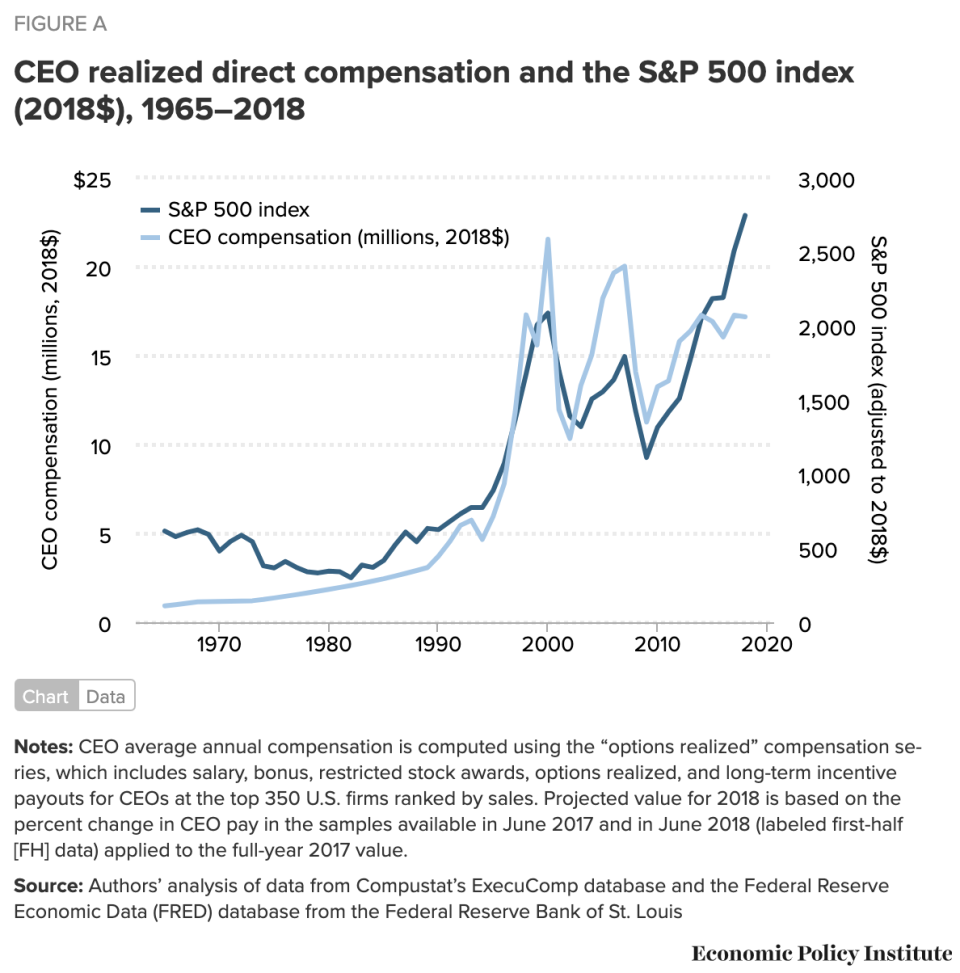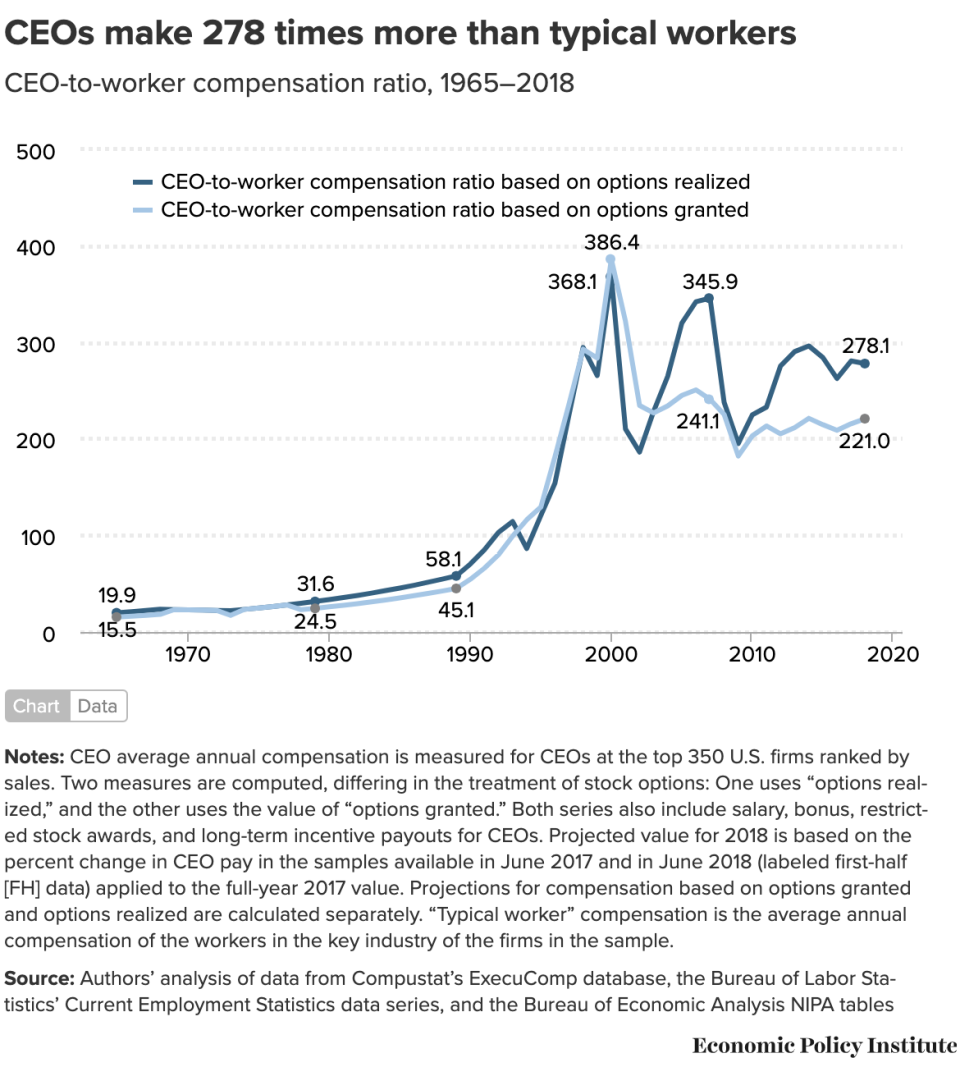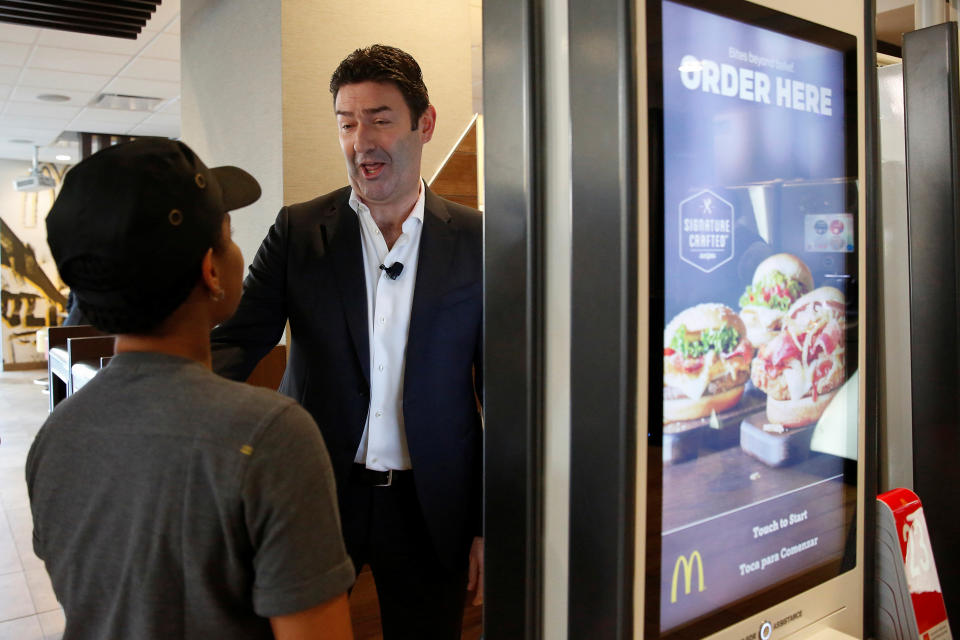CEO compensation is up 1,000% from what it used to be. Worker pay? Not so much.
CEO compensation has increased by 1,007.5% over the past three decades while workers have seen their pay rise by about 12%, according to a new report by the Economic Policy Institute (EPI).
“CEO compensation is really high, and it's really grown tremendously over the last four decades,” Lawrence Mishel, an economist at the D.C.-based left-leaning think tank told Yahoo Finance. “Workers have not done very well at all. This really matters because CEO compensation sets the pattern for executive pay more broadly and has helped fuel the growth of the top 1%.”
The annual report — which compared CEO compensation to average worker earnings from 1978 to 2018 — found that the gap between the two has continued to increase dramatically, as the stock market reached new highs over the past few months.
According to the report, CEO compensation grew by 1,007.5% when taking stock options granted into account, outstripping S&P stock market growth (706.7%) and the growth of “very high earners” (339.2%) during that time. This was in stark contrast to workers who saw wages grow by 11.9%.
(By a measure of options-realized as opposed to granted, CEO pay rose 940.3% under.)

CEOs make 278 times more than a worker
According to the report, CEOs now make 278 times more than their workers. Comparatively, in 1965 a CEO was only making 20 times more.
The peak was in 2000, at the height of the tech bubble, when a CEO was making 368 times as much as the typical worker.
That number fell because of the stock market declines, which “led to a substantial paring back of CEO compensation,” the report stated.

The income gap is also reflected in overall wealth generation, where the richest tenth of American households own 70% of all the wealth, according to research by Deutsche Bank.
And despite being in a tight labor market, workers are still seeing slow wage growth — paltry in comparison to CEO pay.
“There's a lot of reasons why workers are not able to get increased wages,” Mishel explained. “And I think the main reason is that we've really destroyed collective bargaining system in this country. And so there's not an organized force, pushing for higher wages.”

Stock awards becoming more popular
Mishel also noted that stock awards were becoming a more popular method of CEO compensation.
Stock awards refer to stocks granted to employees, which can increase or increase in value depending on how the firm’s stock price performs.
And “these stock awards averaged $7.5 million in 2018, making up nearly half of CEO compensation, the report stated, good from “the bulk of CEO compensation.”
Aarthi is a writer for Yahoo Finance. Follow her on Twitter @aarthiswami.
Read more:
2 big-time CEOs fell surprisingly far in new employee rankings
Billionaire Ken Langone on income inequality: ‘My driver is very happy’
Follow Yahoo Finance on Twitter, Facebook, Instagram, Flipboard, SmartNews, LinkedIn, YouTube, and reddit.

 Yahoo Finance
Yahoo Finance 
